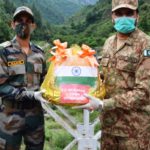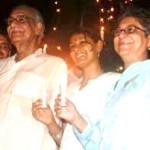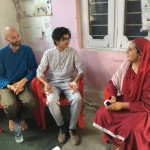Panel discussion on Kashmir at Harvard University
Two leadership fellows of the Center for Public Leadership at the John F. Kennedy School of Government at Harvard University have taken on the onerous responsibility of facilitating dialogue amongst various stakeholders involved in the Kashmir dispute.
Ameya Kilara and Mehul Jain are organizing a panel discussion titled – “Kashmir: Breaking the Impasse” at Harvard University on Feb 12, February, 2017. It is a unique event where leaders from India, Pakistan and Jammu & Kashmir will jointly explore innovative paths to resolve the Kashmir issue and interact with more than 500 community members of Harvard University.
Air Vice Marshal (retired) Kapil Kak, former Jammu & Kashmir Chief Minister Omar Abdullah, and Pakistani Senator Mushahid Hussain will engage in a vigorous debate about why the conflict persists and possible ways forward.
“issues like Kashmir have dropped off the radar despite their impact on millions of people in the sub-continent. Our hope is to start a conversation of hope for the future, not rehash bitterness from the past”, says Ameya Kilara, MPA Candidate and Gleitsman Leadership Fellow, Harvard Kennedy School. “We want to bring South Asia back on the map in top policy schools.”
With the Kashmir valley witnessing another crisis following the death of Burhan Wani last year, India and Pakistan have yet to resume the dialogue process.
Mehul Jain, a Louis Bacon Environmental Fellow at Harvard Kennedy School and a former political consultant, reflects on the challenges they faced along the way. “Prolonged conflict makes it difficult to even talk about an issue without raising the hackles of one or the other stakeholder. Taking this initiative at Harvard has demonstrated to us the importance of building strong relationships across divides – only then can a genuine dialogue begin.”
The organisers believe that peace in Kashmir is not only in the interest of the Kashmiri people but also critical to a region that holds the key to global economic growth and security.
— aka











